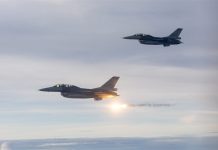Iran and the US have been in a position of stalemate for years. Both the nations have been echoing the sentiment of peace but have failed to reach a working, long-term agreement.
Pakistan ‘Upset’ With Iran Over Sending COVID-19 Infected Patients Into Balochistan
Yonah Jeremy Bob, a Jerusalem Post‘s analyst wrote that it is likely that violence and aggression will escalate because of the differences in how the sides perceive each other, their aggressive actions and their desired end strategies.
Bob’s analysis is based on an “unusual presentation” by Prof. Hassan Ahmadian of Tehran University. Ahmedian is an elite academician who is permitted by the Iranian government to speak publicly in the US and elsewhere. He is considered as an informal ambassador of Iran to influence public opinion.
Ahmadian was a part of a video conference with top governmental foreign policy officials from other countries. According to Bob, Ahmedian said that the US President Donald Trump “tried to box Iran into not having a single option, just capitulation but Tehran has opted to resist this within the Joint Comprehensive Plan of Action (JCPOA)”.
JCPOA is an agreement between Iran and P5 (five permanent members of the UN Security Council) nations along with the Europian Union. It is commonly known as the Iran Nuclear Deal. Iran considered this post deal period as one of calm to the extent that it limited its nuclear program and complied with the agreement.
On the other hand, its adversaries considered it as a “seriously destabilising disappointment” when Iran temporarily captured a US naval vessel, wrote Bob.
Ahmadian further said that Iran doesn’t want a direct military confrontation with the US, but “is leaving the option to its allies, like Iraqi militias, and letting the US know it is not directly involved.” He added that if the aim is to communicate that if Iran gets hurt, they will get hurt too.
Bob interpreted this as turning a blind eye approach where it’s up to its proxies in Iraq, Syria or Lebanon which are capable of attacking the US and its allies. Ahmadian also talked about the assassination of General of Qassem Soleimani by the US forces saying that “US policy has backfired with Iran.”
During the conference call, Ahmadian responded to the attacks on Saudi Arabian oil facilities and explained that “Iran is not trying to hold hostage oil facilities… but the logic was telling and its neighbours understood the logic… Iran’s main problem is not with its Persian Gulf neighbours, but with the Israelis who are trying to set the agenda in the region.”
According to another panellist on the call, Alistair Burt, a former UK Minister of State for the Middle East said that Israel and other Gulf states are trying to include regional matters against Iran. “Neither the Sunni states nor Israel are at peace with the vague interests Tehran says it has in Syria, which they see as attempts to further threaten them,” wrote the author.
He further quotes Ahmadian concerning the feelings of Sunnis that they are trying to get Saudis out of Yemen. Bob’s narrative is endorsed by Ahmadian’s words that Iran is willing to fight its adversaries and bear the pain but is not willing to change its strategies as long as its adversaries are suffering too.




